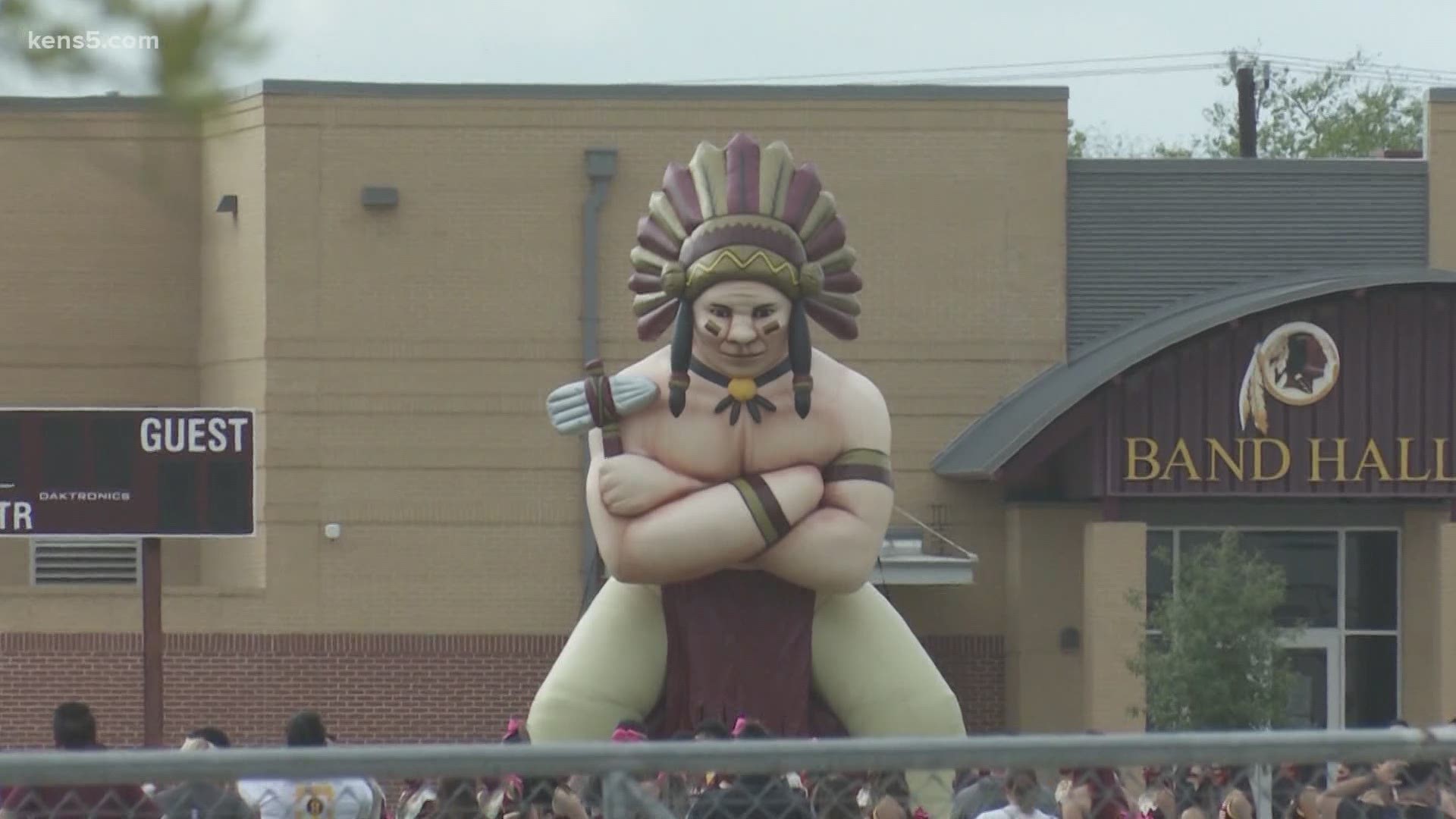SAN ANTONIO — Following decades of being known as the Washington Redskins, the NFL team earlier this year announced it would be called the Washington Football Team for the 2020 season. The change signaled the potential for many schools and teams to rethink their own mascots rooted in racially insensitive histories in response to a revival of discussions and protests on race and racial inequities.
But for some schools across south Texas, the change in monikers — from the Indians to the Squaws — never came.
For Judi West, a member of the Lakota Tribe who lives near Jourdanton High School, “it is very disgusting, very offending to all nations here.” She has long taken more than an issue with the usage of the cartoon imagery and characters, in fact, she’s tried to enact change at the nearby school through education.
"There's five hundred and twenty-nine tribes in the United States of America,” she explained. "Not one of them have been asked if this was OK.”
For decades, the mascots have been justified as a symbol of honor and reverence to strength, but some experts disagree.
“Many of those images have a history of the objectification of indigenous populations,” said Alejandra Elenes, the chair of the University of Texas at San Antonio’s department of race, ethnicity, gender, and sexuality studies. "And when you objectify populations, what you’re doing is you’re dehumanizing them.”
Elenes called it cultural appropriation but explained there are exceptions.
“One thing is to learn from another culture, another language, and respect it,” Elenes said.
An example of that can be found in the Harlandale Independent School District, which is deeply embedded in the histories of Native American Tribes. The Harlandale High School campus was first housed on the grounds of the San Jose Mission where numerous Native American tribes settled.
Though, Harlandale High School principal Fred Anthony understands why the use of an individual’s heritage and being as a mascot has become a topic of national conversation.
“If the Indian name is being used in a derogatory way, that's something we will take a personal offense to because of the respect we pay towards the Indian,” he explained.
More than incorporating headdresses and Native American garb in their traditions and sporting events, the school educates students on the cultural and historical significance of the mascot and traditions through festivals and ceremonies.
In Deep South Texas, the home of the Donna Redskins, district leaders said they have sought the opinions and approval of a local tribe in its continued use of the Redskins name, telling KENS 5, via email:
“For nearly 100 years, the Donna ISD community has taken pride in our Donna Redskin tradition which we hold with tremendous honor. Generations of alumni have deep abiding respect for the tradition and the community it represents. While we are cognizant of the controversy that exists around using Native Americans as a mascot, the Donna ISD community had reached out to a local tribe in past years for its valued opinion and support in the positive portrayal of Native Americans. If there comes a time when we need to revisit the name, we will seek input from our community. However, because of the COVID-19 situation, we are focusing on developing a plan for a safe and successful 2020-2021 school year."
At Jourdanton Independent School District, the district displays “Go Indians! Go Squaws!” on its web pages and in yard signs at its campuses. It’s unclear why the district continues to use the Squaw name despite a well-documented history of disparaging roots. Dictionary searches of the word yield results noting the jargon is “disparaging and offensive.”
Businesses across the country have taken the step of rebranding after facing the meaning of the term squaw, including one former Olympic site.
“This is a very demeaning, very horrible word to use,” West said. "And I don't understand why an educational institute would not investigate the name.”
Despite numerous emails requesting interviews and comment, officials declined to respond to questions and attempted to prohibit KENS 5 from filming the school from a public sidewalk.
Experts said the education on the historical significance of Native American mascots, or lack thereof, starts early on.
“We are not teaching at the elementary school level the complexities of their history,” Elenes explained. “It's just as 'Columbus discovered America’ is still being taught. And that is — just let's start over there, right?”
West said she will continue to voice her opposition to the use of the mascots at Jourdanton ISD and elsewhere.
"I am a Native American woman and the abuse has to stop,” West said. "And it cannot stop until people are educated to understand where we're coming from.”

